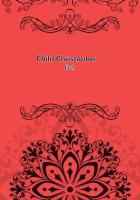Luther owed his success in the opening years of his campaign mainly to his ability in gauging the feelings of the different classes whose support he wished to obtain, as well as to his complete mastery of the German language. In appealing to the monks and nuns, who were longing to escape from the obligations they had contracted, he offered them complete liberty by denouncing their vows as opposed to the ******* of the Gospel and consequently sinful. Many of the monks and nuns abandoned their cloisters and fled to Wittenberg to seek the pleasures denied them hitherto, and to put in practice Luther's teaching on the necessity of marriage. Though he encouraged bishops and priests to marry, and though he forwarded his warmest congratulations to Carlstadt on his betrothal to a fifteen year old maiden (1522), Luther himself hesitated long before taking his final plunge; but at last, against the advice of his best friends, he took as his wife Catherine Bora, one of the escaped nuns who had sought refuge in Wittenberg. His marriage (1525) was a source of amusement to his opponents as it was of dismay to his supporters. Melanchthon complained bitterly of the step his master had taken, but he consoled himself with the thought that the marriage might out an end to his former frivolity, and might allay the suspicions that his conduct had aroused.[23] To the princes, the free cities, and the landless knights he appealed by holding out hopes that they might be enriched by a division of the ecclesiastical estates and of the goods of the monasteries and churches. With the overthrow of the Pope and of the bishops the princes were led to expect that they might themselves become spiritual dictators in their own dominions. To the friends of the Humanist movement and the great body of the professors and students he represented himself as the champion of learning and intellectual *******, anxious to defend them against the obscurantism of the Scholastics and the interference of the Roman congregations.
A large number of the leading Humanists, believing that Luther had undertaken only a campaign against universally recognised abuses, were inclined at first to sympathise with his movement. The friendly attitude they adopted, and the influence employed by Erasmus and others on his behalf during the early years of his revolt contributed not a little to his final success. But as it became evident that his object was the overthrow of the Church and of doctrines accepted as dogmas of faith by the whole Christian world, his former allies fell away one by one. On the question of free-will Erasmus, who had long played a double role, found it necessary to take the field openly against him.[24] Luther's answer, full of personal abuse and invective, drew a sharp reply from Erasmus, and all friendly intercourse between them was broken off for ever.
But it was on the mass of the people, the peasants and the artisans, that Luther relied mainly for support, and it was to these he addressed his most forcible appeals. The peasants of Germany, ground down by heavy taxes and reduced to the position of slaves, were ready to listen to the revolutionary ideas put forward by leaders like Sickingen and von Hutten, and to respond to the call of Luther to rise against their princes whether they were secular or ecclesiastical. In the imagination of the peasants Luther appeared as the friend of human liberty, determined to deliver them from the intolerable yoke that had been laid upon them by their masters. His attacks were confined at first to the prince-bishops and abbots, but soon realising the strength of the weapon he wielded, he attacked the lay princes in the pamphlets entitled /Christian Liberty/ and /The Secular Magistracy/, and advocated the complete overthrow of all authority. It is true, undoubtedly, that many of the peasants were already enrolled in the secret societies, and that had there never been a Luther a popular rising might have been anticipated; but his doctrines on evangelical ******* and his frenzied onslaughts on the ecclesiastical and lay rulers, turned the movement into an anti-religious channel, and imparted to the struggle a uniformity and bitterness that otherwise it could never have acquired.
Risings of the peasantry took place in various parts of Germany, notably in Swabia, Thuringia, the Rhine Provinces, and Saxony (1524).















